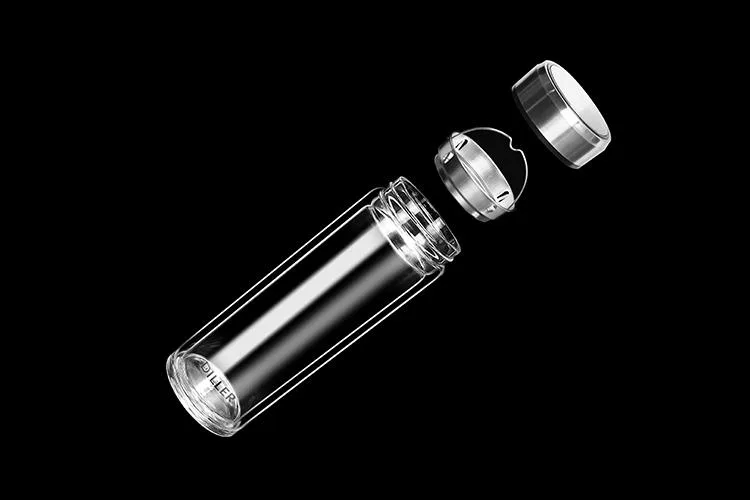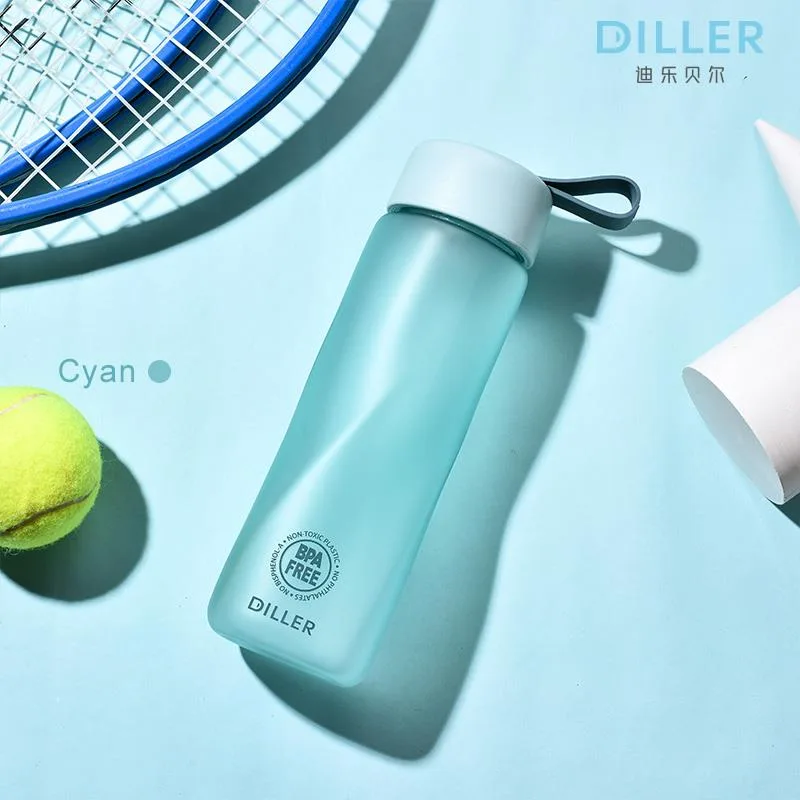Drinking water every day, but have you ever paid attention to the water bottles for drinking water? Bacteria and carcinogens hidden in the water bottle can easily "steal" your health if the cup is not properly chosen. So, what kind of water bottle can be used safely? Which kind of water bottle has potential safety hazards?
Glass Water Bottle
1.Material is the safest. Judging from the material of the water cup, the glass water bottle is the safest to drink water. Glass is made of inorganic silicates and does not contain organic chemicals. And the cup body is smooth, easy to clean, not easy to breed bacteria.
2. Explosion risk. Glass material has strong thermal conductivity. If the water temperature is too high and the glass water bottle is easy to burst, hot water should be avoided. In addition, glass water bottle is eroded by water for a long time. The reaction between sodium silicate and carbon dioxide in the air will produce white carbonate crystals, and long-term non-replacement of the glass water bottle will damage health.
Purchase guide:
1. When choosing glass water bottle, we should pay attention to whether there are cracks in the inner and outer layers of the glass water bottle. The cracked glass water bottle is easy to burst after hot water is injected.
2. See if the glass water bottle body is fine, it is recommended not to choose glass water bottle with impurities or bubbles.
3. High borosilicate glass is preferred in material. This kind of glass water bottle is more heat-resistant, wear-resistant and fall-resistant than ordinary glass water bottle. Generally, it will not break because of drastic change of temperature difference.
Guide for use: It is suggested that the use time of glass should not exceed one year. White crystals can be washed out with alkaline detergent or disinfected with boiled hot water for 10 minutes every week.
Plastic Water Bottle
1. Carcinogenic risk. Plastic products such as polyethylene and polypropylene have no toxic components, but when used to hold hot water, toxic chemicals easily leak into the water, such as bisphenol A, which is related to breast cancer, prostate cancer and sexual precocity. Once ingested, it is difficult for the human body to decompose, and it can also be inherited.
2. Producing bacteria. Plastic water bottles are very easy to breed bacteria. Although the plastic surface looks smooth, there are actually many voids, which are easy to hide dirt.
Purchase guide: For plastic water bottles, it is best to choose PP (polypropylene) or tritan materials. In addition, it is better to purchase qualified products through regular channels.



